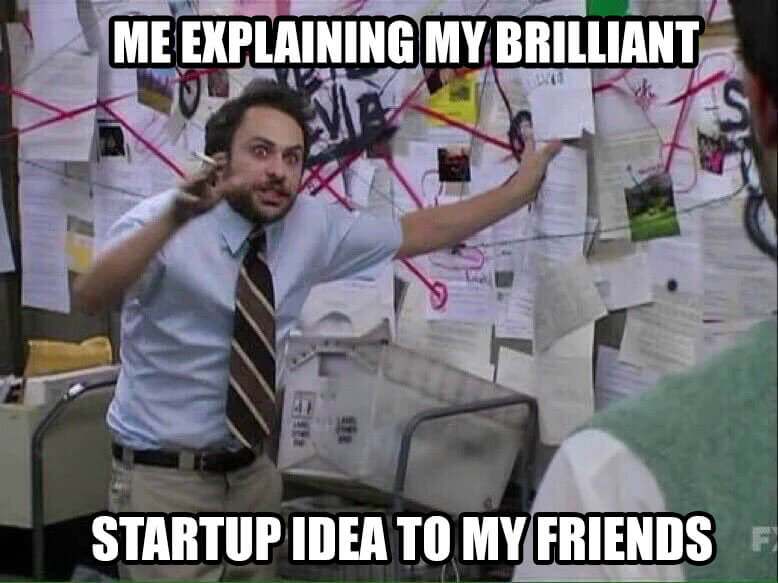How do you decide which startup or business idea to work on?
To me, this is the hardest question to answer in your startup / small business journey. If you have many interests like I do, but lack focus, like I do, you will struggle mightily with this. But don’t worry. There’s a way out of it.
I believe that there is “white space” for startups that don’t aim to “change the world” or that don’t intend to reach multi-billion dollar valuations. I believe there is room for startups that are successful enough to support real families even if they never list their stock on NASDAQ.
In this white space, I see smaller businesses that use tech and tangible assets to produce sub hundred million dollar valuations, for example. Would you not want to build out your business idea if you could only sell it for $20 million?
Most accelerators, incubators, venture capitalists and Wall Street firms are hamstrung by the law of large numbers. They need REALLY big valuations to justify the numerous bets they make on startups that ultimately fail. When your VC firm is worth $20 billion, a $20 million gain on a startup exit doesn’t really move the needle very much.
This is why it’s harder for Apple to increase their market cap because they are valued in the trillions. Why would they be interested in buying a “small” mom and pop enterprise only worth a measly $20 million?
But for normal people like us, building a $20 million business would be a dream come true — a miracle even. And this is the white space that I envision and is the need I want to address with Podnah. In other words, how to go from $0 to $10 million.
Where do my skills intersect with my interests?
So back to choosing your idea.
As I briefly mentioned in our last article, you should ideally find something where you have 1) domain knowledge / expertise, 2) are really good at it and 3) actually enjoy fooling with it.
So for me, I could sit around and play guitar for most of the day. But I never found a great band and never wrote any hit songs. Instead, I went to law school and entered the uptight legal world.
But after practicing law for a number of years, I learned that I’m pretty good at complex problem solving, client relationships, negotiating and making oral arguments (public speaking, basically). How do I take those skills and turn them into a business?
Since I enjoy business, sales, politics, music and being creative, I needed to find where all of these things meet. Maybe it’s starting a political podcast. Maybe it’s starting a new beverage company. Or maybe it’s helping other people who are like me on this journey.
You really need to enjoy the journey. Surprisingly, I found that I enjoy hacking on websites all day and night, making silly videos and talking about business and political issues (griping, essentially).

Knowing what business to start is half the battle. The other half is lasers.
From here you need to figure out where the market is — do people want what you’re going to offer them? Will people pay for the product, service or software you’re going to offer them?
Finding this out is harder than it looks if you’re doing something new and that isn’t currently available in the marketplace. It’s probably much safer to look where product trends are and attack that market.
Is your new business idea a good idea or a bad idea (like Bad Idea jeans)?
Paul Graham, co-founder of Y Combinator, has opined extensively on what business idea to work on in his free essays. Here are some of his key points:
- Solve a Real Problem: Graham emphasizes the importance of starting with a genuine problem that needs solving. Successful startups often address pain points or unmet needs in the market.
- Scratch Your Own Itch: He encourages aspiring entrepreneurs to work on problems they personally care about or have experience with. This passion and firsthand knowledge can be a driving force for success.
- Look for Market Demand: Graham suggests looking for signs of market demand by observing what people are already trying to do, even if imperfectly. It’s often easier to improve existing solutions than to create something entirely new.
- Start Small: He advocates for starting small and building something that a few people love rather than aiming for a massive market from the outset. This allows for rapid iteration and feedback.
- Be Flexible: Graham advises founders to be open to changing their startup idea if they discover it’s not working or if they find a better opportunity along the way. Flexibility can be a valuable trait in the early stages.
- Beware of Competition: While competition can validate a market, Graham suggests being cautious about entering markets with intense competition, as it can be challenging for startups to gain a foothold.
- Think Long-Term: He encourages founders to think about the long-term potential of their idea. The best startup ideas often have room for expansion and growth beyond the initial concept.
- Build Something People Want: One of Y Combinator’s core principles is to “make something people want.” Graham stresses the importance of creating a product or service that resonates with users and fulfills their needs.
- Test Your Ideas: Before committing fully to an idea, Graham advises testing it with a small, targeted audience to gather feedback and validate its viability.
- Avoid Competition With Large Players: Graham cautions against directly competing with well-established, large companies. Instead, he suggests finding a niche or a unique angle that sets your startup apart.
- Stay Focused: Graham encourages founders to stay focused on their startup’s core mission and not get distracted by too many side projects or features.
- Seek User Feedback: Continuously seek feedback from users and be willing to iterate and improve based on their input.
Paul Graham’s advice revolves around the idea that a successful startup begins with a genuine problem or need, a deep understanding of the market, a passion for the solution, and a willingness to adapt and evolve as needed.


